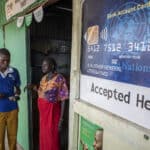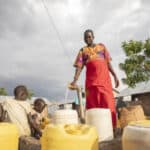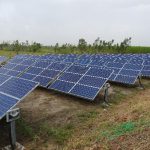- Develop products that attract clients in such areas by listening to their needs and understanding their income cycles.
- Employ local staff to build up confidence and support acceptance of the enterprise or intervention among the community.
FAQ Group: Rafode LTD
Rafode LTD
What are the expected impacts you foresee in the Kakuma and Kalobeyei area following your interventions?
- A significant increase in the use of renewable energy.
- Cash savings from no longer having to purchase expensive, unsafe and unsustainable fuels like charcoal or kerosene.
- Reduction in household and environmental pollution.
- Improved businesses and increased incomes.
What do you look forward to doing in Kakuma/Kalobeyei? How do you see your business growing in the next 5 years? What challenges have you had to overcome?
Our aim is to provide financial services and renewable energy products for both the host community and the refugees, to support their micro and small businesses and also for household use. We see the portfolio in Turkana County growing to over US$3,000,000 in the next 5 years.
The challenges we have faced so far include:
- The communication barrier, since most of the refugees do not speak English: To overcome this challenge, we have employed staff in the various regions to assist with translation.
- Trust issues: Many clients, in both the host and refugee communities, have expressed misgivings about issues to do with trust as a result of being conned before and losing
their savings. We are building trust by sensitising our clients and working with a faster turn-around time.
What attracted you to the Kakuma/Kalobeyei area? Why did you choose to apply for the KKCF funding?
Rafode was interested working with refugee populations, hence the decision to venture into the northern part of Kenya, which is classified as underserved. We applied for the funding to support our entry into Turkana County.


